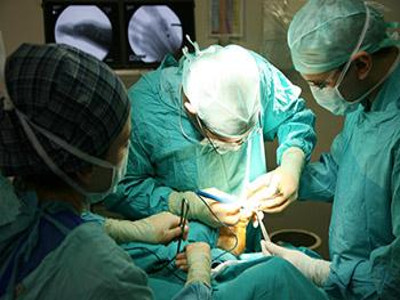How To Deal With Inflammation After Foot Surgery
by Tyler P. A Passionate Blogger - Entertainment Foot surgery is a unique procedure since the feet have to bear the brunt of your weight and body stress. Other forms of surgical procedures like knee or hip procedures are not directly affected by post-operation as the foot. It explains why you have to take doctor’s guideline strictly for a successful recovery after foot surgery. This article will discuss how to deal with inflammation after foot surgery.
Surgery is essentially intended to repair an injury to your body. It’s not natural or healthy for an incision to be made into the skin. Your body naturally treats any type of injury to the body internally by initiating a natural recovery process. It involves a combination of chemicals, cells, and reactions, which are promptly set upon the injured tissue. This is done in an attempt to begin the mending process.
Understanding inflammation
This process is known as inflammation and consists of swelling, warmth, and redness. It looks externally like an infection since the body reacts in a similar way it does to bacteria. Inflammation sometimes comes with pain after foot surgery. This is due to a variety of reasons. The foot has a limited area for swelling, so any excessive swelling pushes against nerves and other sensitive tissue to cause pain. Furthermore, the foot is the lowest part of the body, so gravity forces fluid into the foot than any part of the body.
How to deal with inflammation?
After the best ankle surgery in Houston, inflammation usually lasts about 4 to 7 days. It often comes with a gradual tapering after that time elapses. Moderate inflammation might persist after that period but the bulk of the swelling and chemical reactions peaks and declines a week after surgery. So, you have to follow doctor’s instructions correctly regarding icing, elevation of the foot plus a restriction on activity to decrease inflammation.
Any failure to follow these instructions might lead to a great deal of throbbing and stabbing pain. So, make sure also to use your anti-inflammatory medications as well. Keep in mind that inflammation is part of your healing process. Some soreness is required to begin the mending operation of the surgical site. The body has a way of dealing with the reaction. It can reduce inflammation at the same time healing the surgical spot.
Mistakes to avoid
Avoid making the mistake of not icing or elevating your foot after surgery. Perhaps you are thinking of resuming semi-activity a short while after surgery. This is a wrong idea. Though your body will feel great shortly after surgery, following the doctor’s guidelines is essential. Though the urge to get up and become active is high, you have to avoid it. Your foot is not yet ready to resume activity and forcing it might harm the surgical site.
Tissue held together by stitches requires time to mend. The immediate activity might stretch and pull on the fragile bindings. Further inflammation, delayed healing, and future excessive scar tissue might come about from exposing the foot to early activity. The skin incision might even split. Furthermore, earlier activity than advised forces gravity to push fluid into the foot and prolong inflammation. It could result in long-term swelling, which might even go on for months.
Bottom line
When your foot is operated on, following the surgeon’s specific instructions is very important for a quick recovery. You have to take guidelines regarding post-operative activity which is essential to prevent long-term complications and unnecessary pain.
Sponsor Ads
Created on Dec 6th 2017 06:41. Viewed 341 times.
Comments
No comment, be the first to comment.



